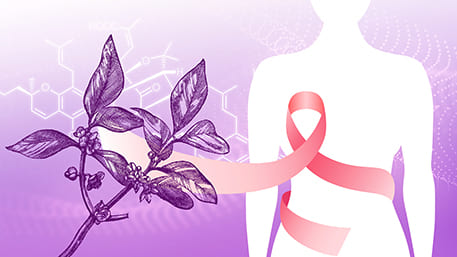Novel targeted therapy for triple-negative breast cancer

Sponsored by

Sponsored by

Researchers from Hong Kong Baptist University (HKBU) have developed a novel targeted therapy for triple-negative breast cancer (TNBC) that uses a specially-designed nano-carrier to deliver the Chinese medicine compound gambogic acid (GA). The invention enhances the anti-cancer effect of GA and reduces its damage to off-target organs, and it could become a more effective therapeutic option for TNBC.
TNBC grows and spreads faster than other types of breast cancer, and there are few treatment options. Studies have shown that GA, a herbal compound, can inhibit the growth of cancer cells. However its clinical application is limited by its rapid elimination from the circulation system, and its poor water solubility makes it difficult for GA to reach the cancer cells. Furthermore, high dosages of GA can cause damage to off-target organs due to its toxicity.
In the search for a more effective treatment protocol for TNBC, researchers from HKBU’s School of Chinese Medicine, together with a team from Cornell University, designed a bio-degradable nano-carrier which can enhance GA’s therapeutic efficacy and the delivery of GA to TNBC cells.

A research team led by Professor Bian Zhaoxiang (left) and Dr Kwan Hiu-yee (right) of HKBU's School of Chinese Medicine collaborated with Cornell University to develop a nano-carrier that increases the treatment efficacy of gambogic acid for TNBC.
In mouse model experiments, the results showed that the GA-loaded nano-carrier is more effective at shrinking the tumours than the free GA and it stays in the circulation system for longer. Furthermore, when compared with free GA, the GA delivered by the nano-carrier caused less damage to the off-target organs.
“The application of nanotechnology in this study modernises the delivery of Chinese medicine, thereby enhancing its therapeutic efficacy. We believe that our nano-carriers have great clinical potential to treat TNBC and other types of cancer,” said Professor Bian Zhaoxiang, one of the lead researchers and Tsang Shiu Tim Endowed Professor in Chinese Medicine Clinical Studies.
The study was published in Frontiers in Oncology.